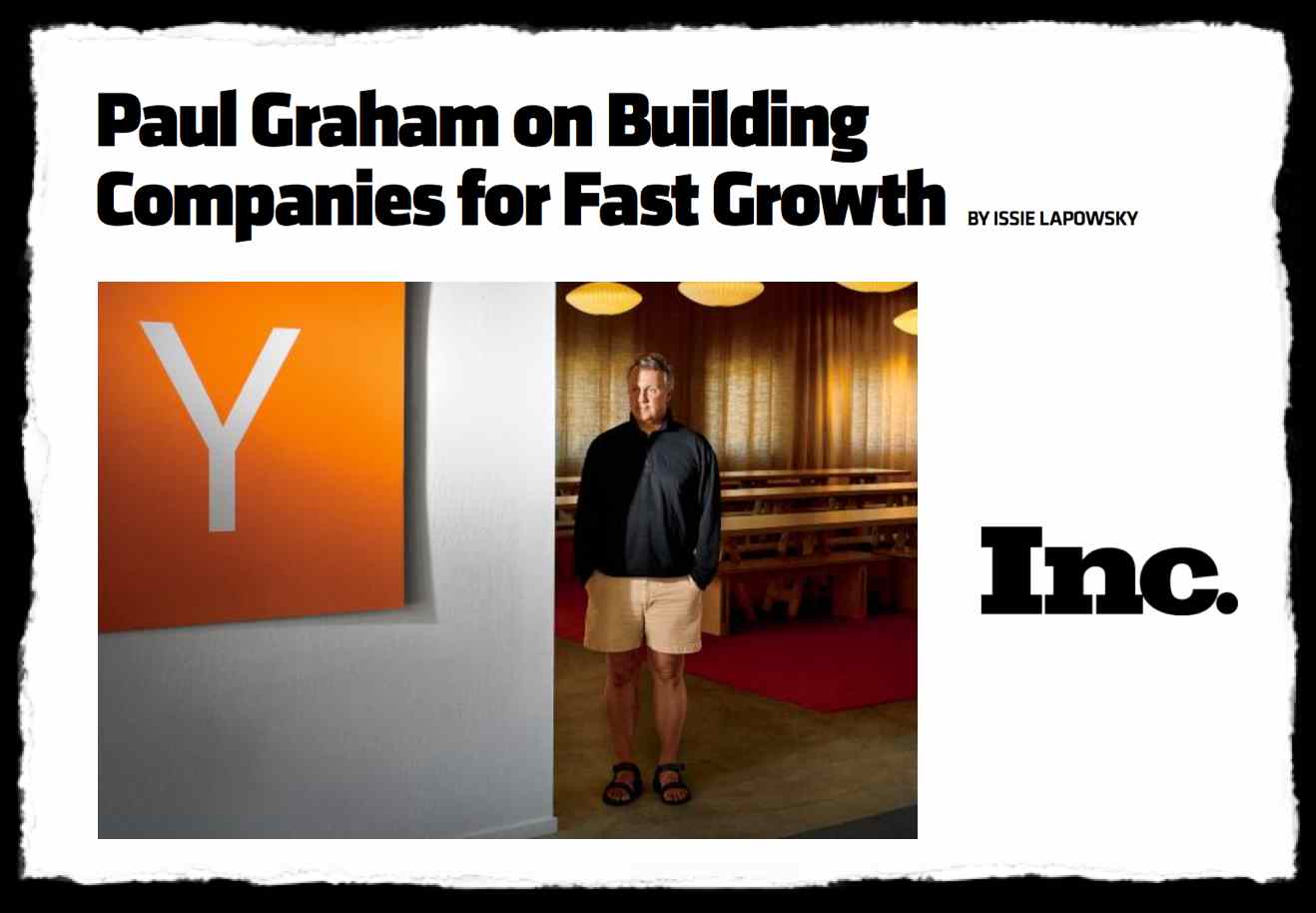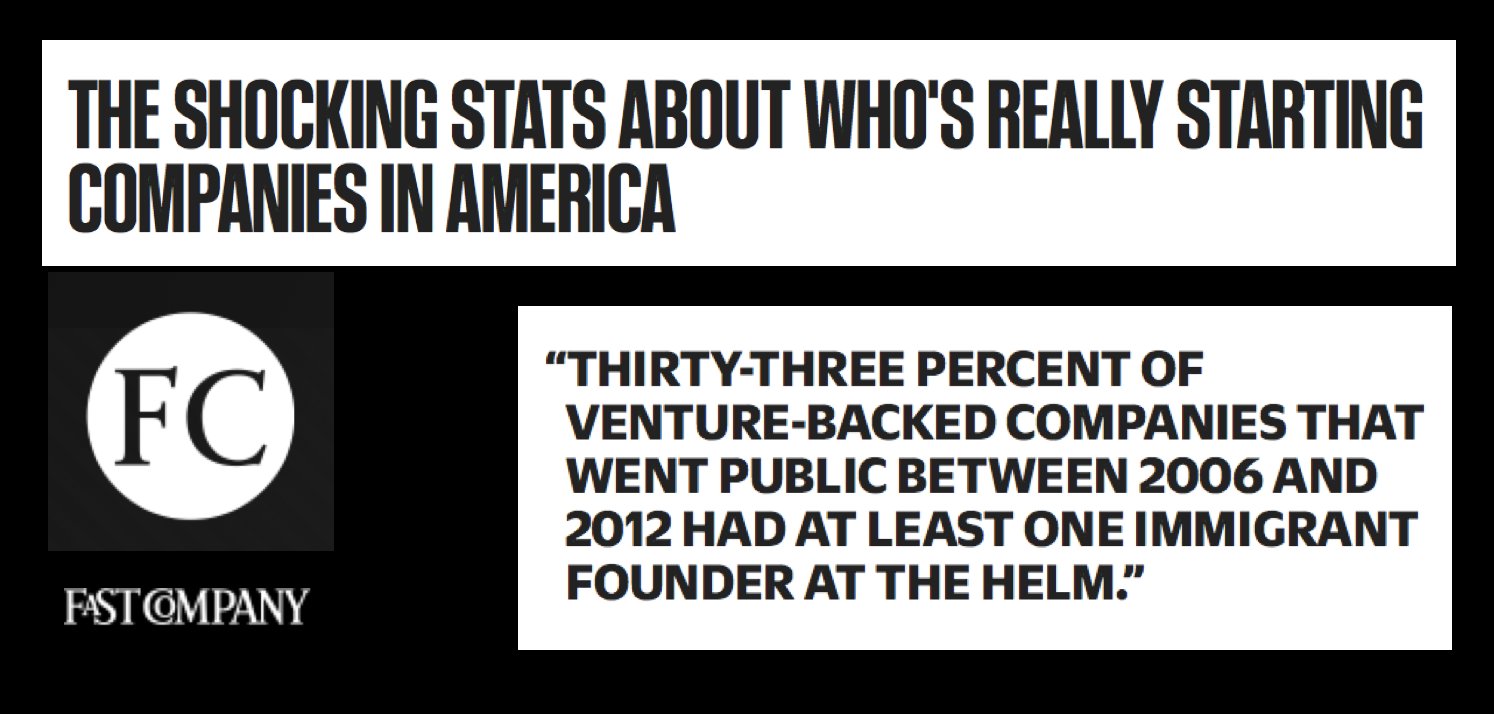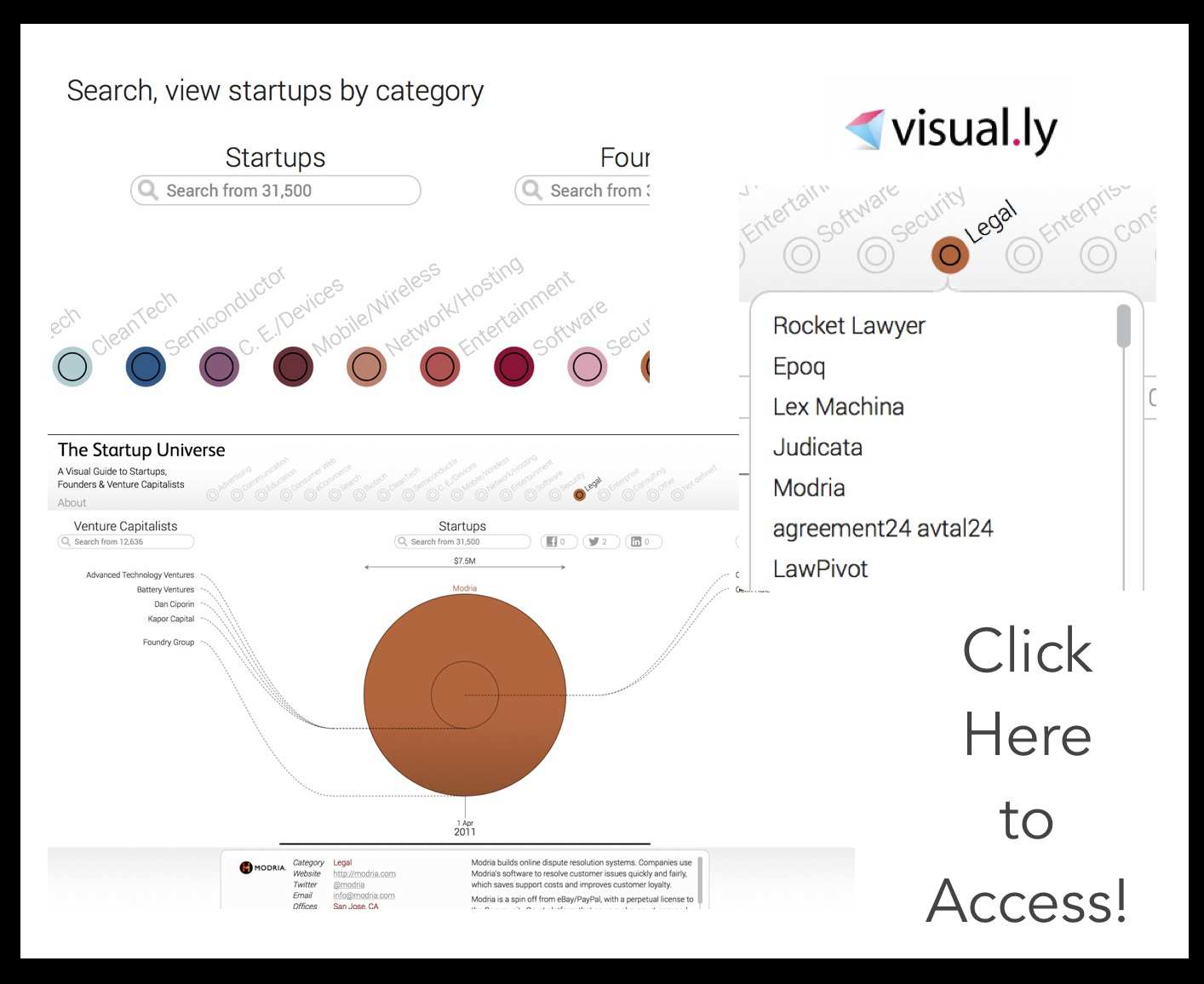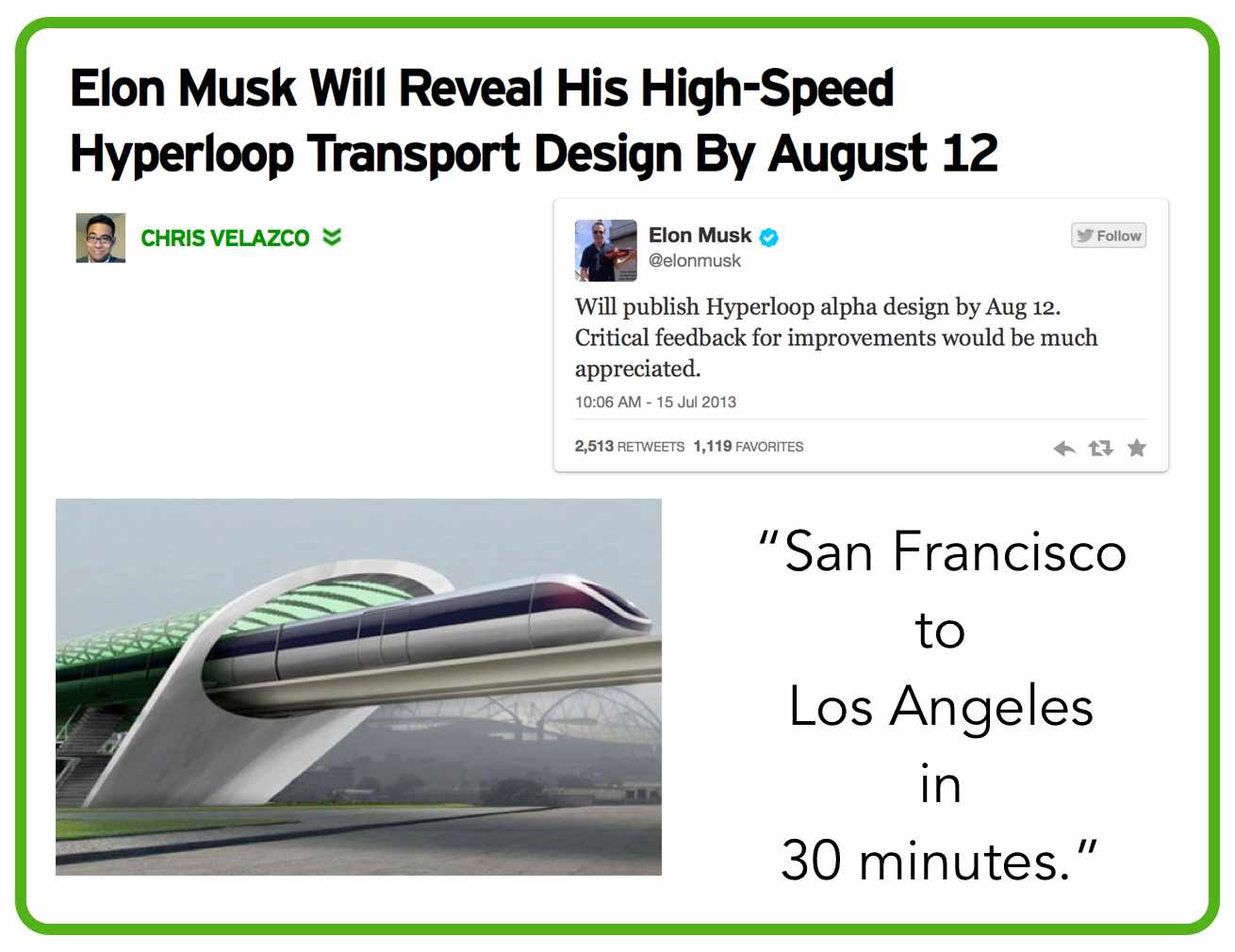 This is topic of great interest for a number of reasons. Mike, Jon and I have several papers in this basic direction (with hopefully more coming soon). Probably the most relevant of our paper is “Distance Measures for Dynamic Citation Networks” which we published in Physica A back in late-2010. For those who might be interested – a copy of our paper (with James H. Fowler) is available on SSRN and on ArXiv.
This is topic of great interest for a number of reasons. Mike, Jon and I have several papers in this basic direction (with hopefully more coming soon). Probably the most relevant of our paper is “Distance Measures for Dynamic Citation Networks” which we published in Physica A back in late-2010. For those who might be interested – a copy of our paper (with James H. Fowler) is available on SSRN and on ArXiv.
Author: clsadmin
Proud to Be Named to the 2013 Class of Legal Rebels by the ABA Journal
 Proud to be honored – promise to keep working hard – and I am really looking forward to sharing some really cool new projects (with Michael J Bommarito II, Michael Bossone, Bill Henderson, J.B Ruhl and many others) that are in the pipeline — coming in 2014!
Proud to be honored – promise to keep working hard – and I am really looking forward to sharing some really cool new projects (with Michael J Bommarito II, Michael Bossone, Bill Henderson, J.B Ruhl and many others) that are in the pipeline — coming in 2014!
Complex Systems Models in the Social Science @ UMich ICPSR Summer Program in Quantitative Methods
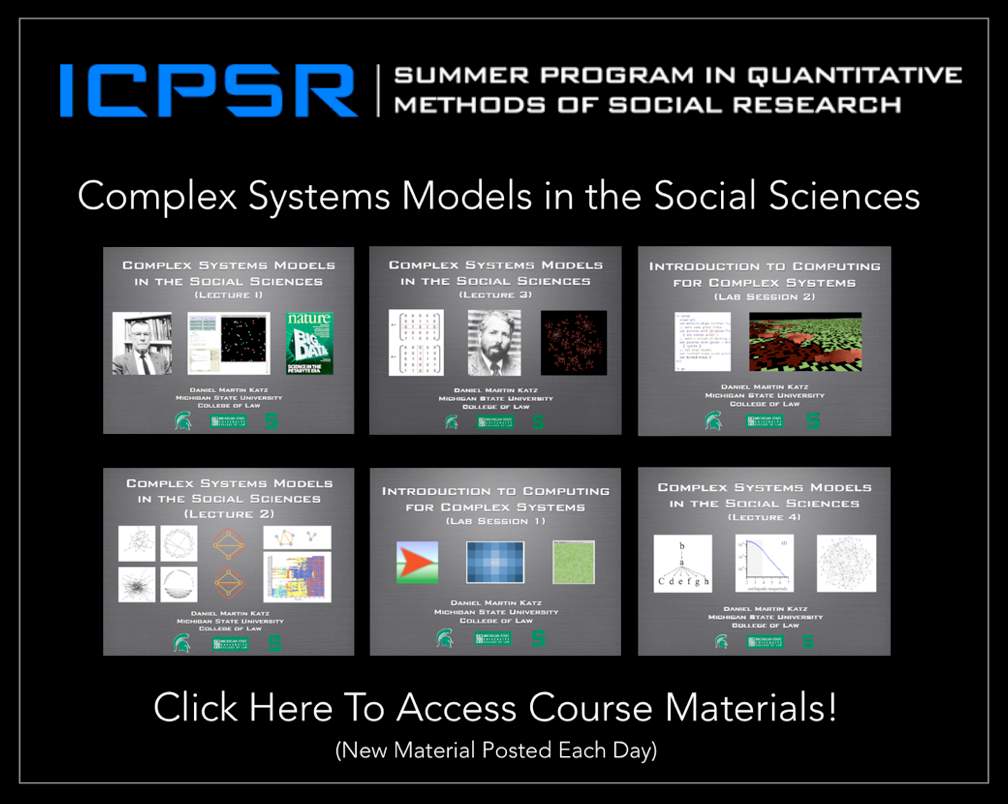 This week and next week I have the pleasure of teaching “Complex Systems Models in the Social Sciences” here at the University of Michigan ICPSR Summer Program in Quantitative Methods. The field of complex systems is very diverse and it is difficult to do complete justice to the range of scholarship conducted under this umbrella. However, we strive to cover the canonical topics such as computational game theory and computational modeling, network science, natural language processing, randomness vs. determinism, diffusion, cascades, emergence, empirical approaches to study complexity (including measurement), social epidemiology, non-linear dynamics, etc.
This week and next week I have the pleasure of teaching “Complex Systems Models in the Social Sciences” here at the University of Michigan ICPSR Summer Program in Quantitative Methods. The field of complex systems is very diverse and it is difficult to do complete justice to the range of scholarship conducted under this umbrella. However, we strive to cover the canonical topics such as computational game theory and computational modeling, network science, natural language processing, randomness vs. determinism, diffusion, cascades, emergence, empirical approaches to study complexity (including measurement), social epidemiology, non-linear dynamics, etc.
Honored to Be Named to the Fastcase 50 – Innovative Thinkers in Law
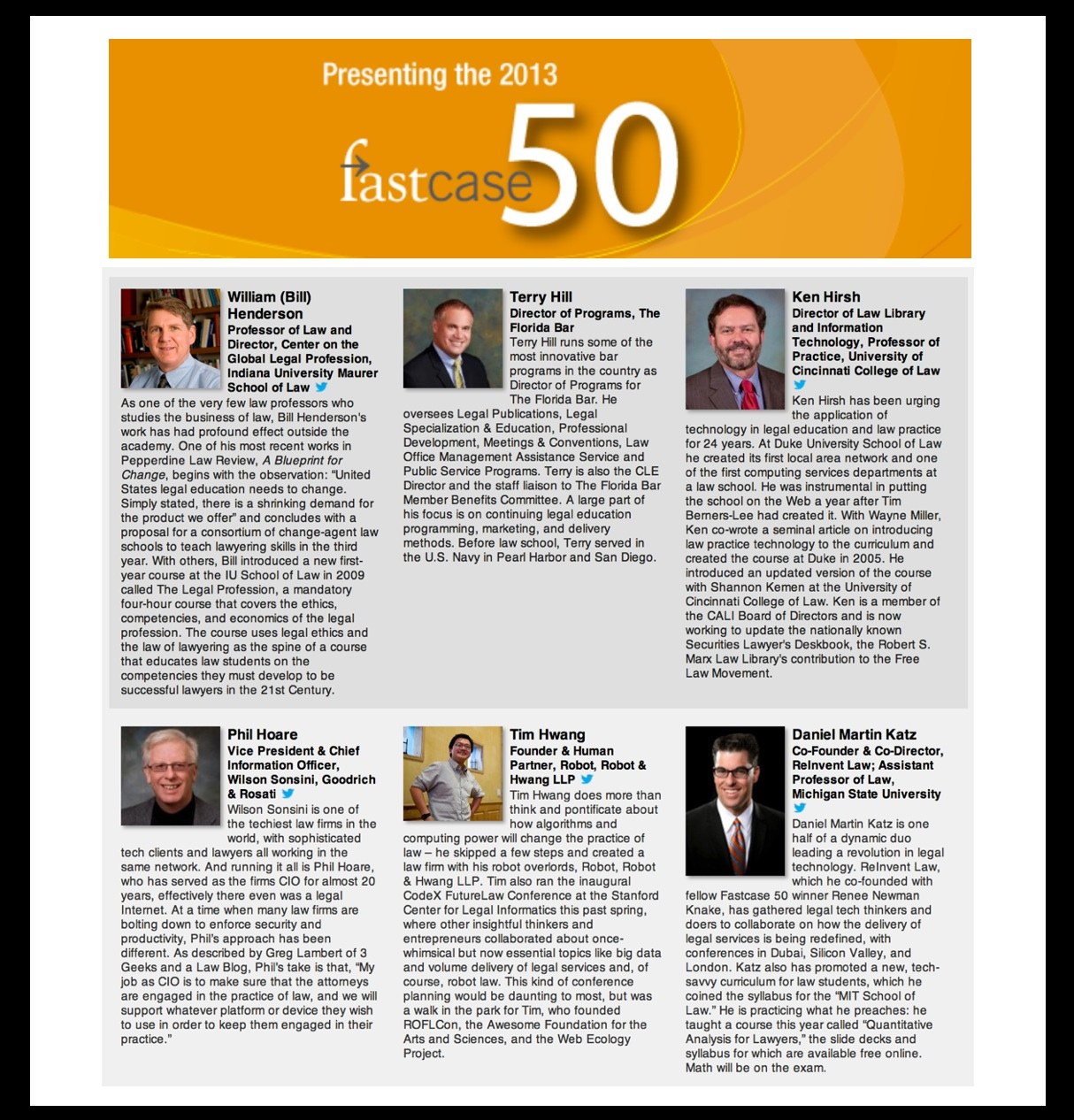 From the Announcement: “2013 was the Year of Reinvention, with innovators gathering at several national conferences pushing the boundaries of the business of law, using software, algorithms, and new pricing models for lawyers as a way to better provide legal services to the middle class. New companies challenged our assumptions about legal research, and established challengers hit their stride as much larger enterprises. Bar associations and law professors sought to change some of the most traditional legal organizations serving law students and lawyers. The Fastcase 50 classes of 2011 and 2012 were an inspiration. This year, you submitted a record number of nominations, and we are pleased to honor the Fastcase 50 Class of 2013.”
From the Announcement: “2013 was the Year of Reinvention, with innovators gathering at several national conferences pushing the boundaries of the business of law, using software, algorithms, and new pricing models for lawyers as a way to better provide legal services to the middle class. New companies challenged our assumptions about legal research, and established challengers hit their stride as much larger enterprises. Bar associations and law professors sought to change some of the most traditional legal organizations serving law students and lawyers. The Fastcase 50 classes of 2011 and 2012 were an inspiration. This year, you submitted a record number of nominations, and we are pleased to honor the Fastcase 50 Class of 2013.”
I am honored to have been named to this list for 2013!
Using Algorithmic Attribution Techniques to Determine Authorship In Unsigned Judicial Opinions
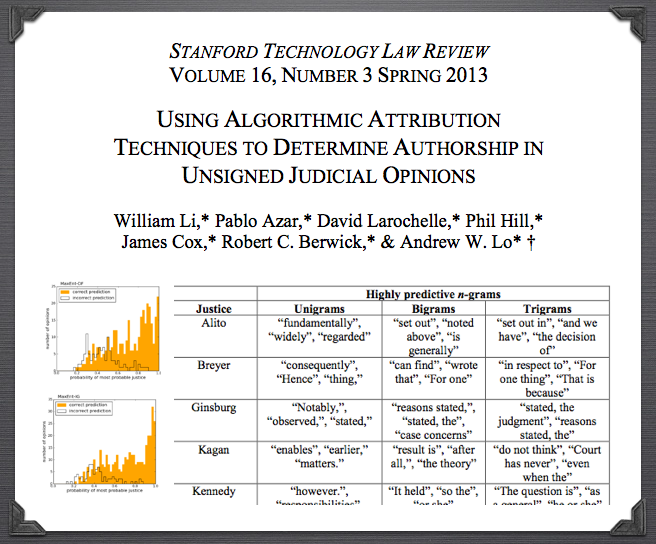
From the Abstract: “This Article proposes a novel and provocative analysis of judicial opinions that are published without indicating individual authorship. Our approach provides an unbiased, quantitative, and computer scientific answer to a problem that has long plagued legal commentators. Our work uses natural language processing to predict authorship of judicial opinions that are unsigned or whose attribution is disputed. Using a dataset of Supreme Court opinions with known authorship, we identify key words and phrases that can, to a high degree of accuracy, predict authorship. Thus, our method makes accessible an important class of cases heretofore inaccessible. For illustrative purposes, we explain our process as applied to the Obamacare decision, in which the authorship of a joint dissent was subject to significant popular speculation. We conclude with a chart predicting the author of every unsigned per curiam opinion during the Roberts Court.” <HT: Josh Blackman>

